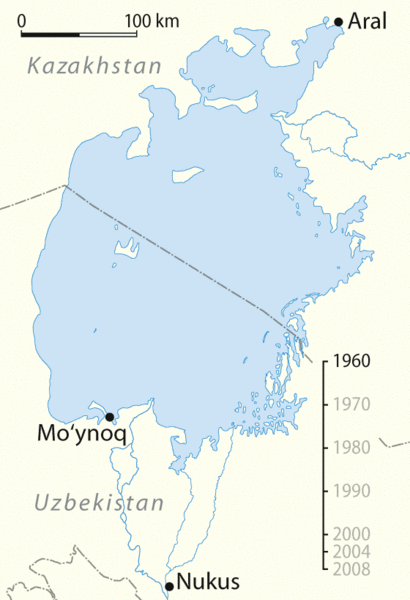World War Two
Published 6 Aug 2020George Orwell is one of the most famous English writers in the modern age. But how did he become the man who would coin so many of the words we still use in our political debates?
Join us on Patreon: https://www.patreon.com/TimeGhostHistory
Or join The TimeGhost Army directly at: https://timeghost.tvFollow WW2 day by day on Instagram @World_war_two_realtime https://www.instagram.com/world_war_two_realtime
Between 2 Wars: https://www.youtube.com/playlist?list…
Source list: http://bit.ly/WW2sourcesHosted by: Indy Neidell
Written by: Rune Væver Hartvig
Director: Astrid Deinhard
Producers: Astrid Deinhard and Spartacus Olsson
Executive Producers: Astrid Deinhard, Indy Neidell, Spartacus Olsson, Bodo Rittenauer
Creative Producer: Joram Appel
Post-Production Director: Wieke Kapteijns
Research by: Rune Væver Hartvig
Edited by: Mikołaj Cackowski
Sound design: Marek Kamiński
Map animations: Eastory (https://www.youtube.com/c/eastory)Colorizations by:
Cassowary https://www.flickr.com/photos/cassowa…
Klimbim https://www.flickr.com/photos/2215569…Sources:
Wellcome Images V0014461
Bundesarchiv
Narodowe Archiwum Cyfrowe
From the Noun Project: Pig by supalerk laipawat, Horse by supalerk laipawat, Goat by Laymik, Sheep by Laymik, Cow by supalerk laipawat, Chicken by supalerk laipawat, Farmer by Symbolon, Podium by Focus LabSoundtracks from the Epidemic Sound:
Howard Harper-Barnes – “London”
Johannes Bornlof – “Deviation In Time”
Johannes Bornlof – “The Inspector 4”
Skrya – “First Responders”
Jo Wandrini – “Puzzle Of Complexity”Archive by Screenocean/Reuters https://www.screenocean.com.
A TimeGhost chronological documentary produced by OnLion Entertainment GmbH.
August 7, 2020
A Career Anti-Fascist – George Orwell – WW2 Biography Special
August 1, 2020
EP Thompson: The Foremost Marxist in History | Historians who changed History
The Cynical Historian
Published 1 Nov 2018Today let’s talk about Marxist historians. Edward Palmer Thompson makes perhaps the best introduction to the realm of Marxist history. His work on the English Labor Class, allows for a better understanding of the Marxist project, and how understanding class consciousness can lead to revolution.
————————————————————
references:
Beard, Charles. “Written History as an act of Faith”, The American Historical Review 39, no. 2 (January 1934), 219-231.Marx, Karl. The Essential Marx. ed. Leon Trotsky, abridgment of Das Kapital, Vol. I. 1939; Mineola, N.York: Dover Publications, 2006. https://amzn.to/2MWygco
Thompson, E.P. “The Moral Economy of the English Crowd in the Eighteenth Century”, Past and Present, No. 50 (Feb., 1971), 76-136.
Thompson, E.P. The Making of the English Working Class. New York: Pantheon Books, 1963. https://amzn.to/2KFSESC
Special thanks to Dr. Colleen Hall-Patton for proofreading the script for this episode.
————————————————————
Support the channel through Patreon:
https://www.patreon.com/CynicalHistorian
or pick up some merchandise at SpreadShirt:
https://shop.spreadshirt.com/cynicalh…LET’S CONNECT:
https://discord.gg/Ukthk4U
https://twitter.com/Cynical_History
————————————————————
Wiki:
Edward Palmer Thompson (3 February 1924 – 28 August 1993), usually cited as E. P. Thompson, was a British historian, writer, socialist and peace campaigner. He is probably best known today for his historical work on the British radical movements in the late 18th and early 19th centuries, in particular The Making of the English Working Class (1963). He also published influential biographies of William Morris (1955) and (posthumously) William Blake (1993) and was a prolific journalist and essayist. He also published the novel The Sykaos Papers and a collection of poetry. His work is considered to have been among the most important contributions to labour history and social history in the latter twentieth-century, with a global impact, including on scholarship in Asia and Africa.Thompson was one of the principal intellectuals of the Communist Party in Great Britain. Although he left the party in 1956 over the Soviet invasion of Hungary, he nevertheless remained a “historian in the Marxist tradition”, calling for a rebellion against Stalinism as a prerequisite for the restoration of communists’ “confidence in our own revolutionary perspectives”. Thompson played a key role in the first New Left in Britain in the late 1950s. He was a vociferous left-wing socialist critic of the Labour governments of 1964–70 and 1974–79, and an early and constant supporter of the Campaign for Nuclear Disarmament, becoming during the 1980s the leading intellectual light of the movement against nuclear weapons in Europe.
————————————————————
Hashtags: #History #Marx #EPThompson #ClassConsiousness #Materialism #TheMakingOfTheEnglishWorkingClass
July 8, 2020
H.G. Wells, fortunately for his reputation, is mostly remembered for his science fiction writings
I was well into my twenties before I found out that H.G. Wells the science fiction writer was only a small slice of his career. I picked up a one-volume edition of his Outline of History, but it didn’t seem to have the same interest for me that The War of the Worlds or The Time Machine had done (and honestly, it was Jeff Wayne’s musical interpretation of War of the Worlds that pushed me to read any of his writing). His analysis of the events of his day fell well short of his reputation, as George Orwell pointed out:
In March or April, say the wiseacres, there is to be a stupendous knockout blow at Britain … What Hitler has to do it with, I cannot imagine. His ebbing and dispersed military resources are now probably not so very much greater than the Italians’ before they were put to the test in Greece and Africa.
The German air power has been largely spent. It is behind the times and its first-rate men are mostly dead or disheartened or worn out.
In 1914 the Hohenzollern army was the best in the world. Behind that screaming little defective in Berlin there is nothing of the sort … Yet our military “experts” discuss the waiting phantom. In their imaginations it is perfect in its equipment and invincible in its discipline. Sometimes it is to strike a decisive “blow” through Spain and North Africa and on, or march through the Balkans, march from the Danube to Ankara, to Persia, to India, or “crush Russia”, or “pour” over the Brenner into Italy. The weeks pass and the phantom does none of these things — for one excellent reason. It does not exist to that extent. Most of such inadequate guns and munitions as it possessed must have been taken away form it and fooled away in Hitler’s silly feints to invade Britain. And its raw jerry-built discipline is wilting under the creeping realisation that the Blitzkrieg is spent, and the war is coming home to roost.
These quotations are not taken from The Cavalry Quarterly but from a series of newspaper articles by Mr. H. G. Wells, written at the beginning of this year and now reprinted in a book entitled Guide to the New World. Since they were written, the German Army has overrun the Balkans and reconquered Cyrenaica, it can march through Turkey or Spain at such time as may suit it, and it has undertaken the invasion of Russia. How that campaign will turn out I do not know, but it is worth noticing that the German general staff, whose opinion is probably worth something, would not have begun it if they had not felt fairly certain of finishing it within three months. So much for the idea that the German Army is a bogey, its equipment inadequate, its morale breaking down, etc. etc.
What has Wells to set against the “screaming little defective in Berlin”? The usual rigmarole about a World State, plus the Sankey Declaration, which is an attempted definition of fundamental human rights, of anti-totalitarian tendency. Except that he is now especially concerned with federal world control of air power, it is the same gospel as he has been preaching almost without interruption for the past forty years, always with an air of angry surprise at the human beings who can fail to grasp anything so obvious.
[…]
Mr. Wells, like Dickens, belongs to the non-military middle class. The thunder of guns, the jingle of spurs, the catch in the throat when the old flag goes by, leave him manifestly cold. He has an invincible hatred of the fighting, hunting, swashbuckling side of life, symbolised in all his early books by a violent propaganda against horses. The principal villain of his Outline of History is the military adventurer, Napoleon. If one looks through nearly any book that he has written in the last forty years one finds the same idea constantly recurring: the supposed antithesis between the man of science who is working towards a planned World State and the reactionary who is trying to restore a disorderly past. In novels, Utopias, essays, films, pamphlets, the antithesis crops up, always more or less the same. On the one side science, order, progress, internationalism, aeroplanes, steel, concrete, hygiene: on the other side war, nationalism, religion, monarchy, peasants, Greek professors, poets, horses. History as he sees it is a series of victories won by the scientific man over the romantic man.
In addition to being a surprisingly consistent one-note proponent of the same solution to every problem, he was, as Michael Coren relates, a nasty piece of work in his personal life:
There’s an anecdote concerning H.G. Wells that rather exemplifies his character. A London theatre in the 1920s. Wells was approached by a nervous, eager young fan. “Mr. Wells, you probably don’t remember me”, he said, holding out his hand. “Yes, I bloody do!” replied Wells, and rudely turned his back. Personality aside, Wells also embraced anti-Semitism, racism, and social engineering, and in this atmosphere of outrage and iconoclasm it’s surprising that he hasn’t been more targeted for symbolic removal. Then again, perhaps not. Because while the undoubtedly gifted author said and believed some dreadful things he was also a man of the left. And when it comes to cancel culture, socialism is the ultimate prophylactic.
George Bernard Shaw said of his nastiness and his ugly views, “Multiply the total by ten; square the result. Raise it again to the millionth power and square it again; and you will still fall short of the truth about Wells — yet the worse he behaved the more he was indulged; and the more he was indulged the worse he behaved.”
In fact, for much of the 20th-century eugenics was a creature of the left as much if not more than the right. Shaw himself, Sydney and Beatrice Webb and many other left-wing intellectuals were convinced that for the lives of the majority to improve there had to be a harsh control of the minority.
Wells argued that the existing social and economic structure would collapse and a new order would emerge, led by “people throughout the world whose minds were adapted to the demands of the big-scale conditions of the new time … a naturally and informally organized educated class, an unprecedented sort of people.” The “base,” the class at the bottom of the scale, “people who had given evidence of a strong anti-social disposition,” would be in trouble. “This thing, this euthanasia of the weak and the sensual, is possible. I have little or no doubt that in the future it will be planned and achieved.” He wrote of, “boys and girls and youth and maidens, full of zest and new life, full of an abundant joyful receptivity … helpers behind us in the struggle.” Then chillingly, “And for the rest, these swarms of black and brown and dingy white and yellow people who do not come into the needs of efficiency … I take it they will have to go.”
June 18, 2020
The origins of Antifa
Kyle Shideler outlines the history of Antifa from the Weimar Republic to the streets of cities all over the western world:

“antifa 8973ag” by cantfightthetendies is licensed under CC BY 2.0
With riots and civil unrest metastasizing across the United States, the president declared he intends to designate Antifa as a terrorist group. Predictably, the talking heads rushed out to declare that Antifa doesn’t really exist, and even if it did the president couldn’t possibly target it using that legal designation. They argue Antifa is an amorphous blob of discontents, not a functioning organization, and certainly not one which could be designated and targeted for concentrated counterterrorism enforcement.
As usual, the Twitterati don’t know what they are talking about. Reality is both simpler and more complex.
To begin at the beginning: Antifa — real name: Antifaschisitsche Aktion — was born during the street-fights of the 1932 Weimar Republic. It was founded by the Stalinist Communist Party of Germany (KPD), although various Communist “anti-fascist defense” units were associated with the KPD much earlier.
Anti-fascist Action’s sole purpose was to help the KPD combat other political parties for control of the streets in the revolutionary politics of the rapidly failing Weimar Republic.
And yes, they fought the Nazis.
But they also fought liberal parties, conservative parties, and anyone and everyone who got in their way. While these early antecedents were short-lived, it is useful to view Antifa in this context. More than anything, Antifa exists to serve as a tool of revolutionary politics in a failed (or failing) state.
Antifa would reestablish itself in the early 1980s, also in Germany, out of Autonomism. Autonomism is an anti-authoritarian anarcho-Marxist ideology associated with the Communist urban guerilla organizations of 1970s and ’80s Europe like Red Army Faction and the Red Brigade. Autonomism would find a home among the young punks of Germany’s squatters’ rights movement. Around this time, Antifa tactics like the “black block,” where large numbers of rioters dress in black and move together in formation as part of a larger protest, were developed.
H/T to Rafe Champion for the link.
June 2, 2020
“Calling a modern ‘artist’ a poseur is like calling water wet — what could possibly be the point?”
Severian on modern “art” and its practitioners:

Picasso’s “Guernica” in mural form in the town of Guernica.
Photo by Papamanila via Wikimedia Commons.
Leszek Kolakowski, in his essay collection Is God Happy?, wrote several fascinating essays on Communism vs. other forms of Socialism, such as Fascism and generic Leftism. He notes that while Communism proper attracted lots of serious intellectuals and artists, who produced some works of real merit, generic “Leftism” had few, and Fascism almost none.
He also notes the degeneration of art on the Left. I don’t want / am not qualified to get deep into the weeds of art history, but let me use an example (mine, not Kolakowski’s): Pablo Picasso vs … oh, pick an artist, they’re all Lefties … let’s say Andy Warhol. Noting that “important” can be diametrically opposed to things like “good,” “aesthetically pleasing,” etc., we can all agree that both were important artists. Whatever else their differences, the most obvious one was:
Sincerity.
Picasso was a lifelong member of the Communist Party. He was also a sincere artist (which, again, can be miles away from “good;” I personally can’t stand Picasso’s art). Guernica is wildly overrated, and its sentiment jejune — we all agree that bombing civilians is bad, mmkay? — but at least it’s sincere. Warhol, on the other hand, never took a sincere breath in his life. Making your work superficial on purpose doesn’t absolve you from the sin of superficiality. Warhol (and Roy Lichtenstein, and the rest of the “Pop Art” crowd) gave wannabes permission to substitute “being ironic” for “having something to say,” and there’s your modern art in a nutshell. Calling a modern “artist” a poseur is like calling water wet — what could possibly be the point?
Which brings us back to Kolakowski. He notes that there are apostates aplenty from Communism, and they all seem compelled to write big long books full of critical self-examination. Cheering for the murder of millions would do that, one supposes… except that, as Kolakowski says, you can’t find one single ex-Leftist doing it. Hell, is there such a thing as an ex-Leftist, as opposed to an ex-Communist? Kolakowski couldn’t find one (as of 1995, I think), and I can’t think of one either. Every former radical I’m aware of was just that — a radical, a card-carrying Communist or at least a virulent fellow-traveler, e.g. David Horowitz. We probably all have heard of someone waking up one day (say, after 9/11) realizing that the Democratic Party they’d been knee-jerk voting for all their lives was out to lunch, but do you know of any True Believers seeing the light?
April 14, 2020
Socialism and the environment
Luke Warren on the vast gulf between the “environmental consciousness” of fans of the socialist worldview and the real-world environmental impact of socialist policies:
Modern environmentalists often identify as socialists. Members of Extinction Rebellion, for example, often advocate tearing down capitalism and supplanting it with “eco-socialism”. Go to any “climate strike” or similar type of event, and you will see more hammer and sickle flags, raised fist symbols and Socialist Workers party posters than you can count.
Indeed, socialism and environmentalism are perceived by many as two sides of the same coin, and the idea that climate change is a “crisis of capitalism” has become conventional wisdom. It is now seemingly a contradiction to be both a capitalist and an environmentalist. This is not just a matter of rhetoric, but it is also reflected in the policy prescriptions of both environmentalists and socialists. Look at proposals for a “green new deal”, calls for large-scale nationalisation in the name of the environment.
But what is the story of socialism and environmentalism?
One only has to look back at the failed experiments of socialism to see just how environmentally catastrophic it has been. As the Soviet Union collapsed and the iron curtain was torn down, the rest of the world finally saw the environmental damage caused by socialist command economies. Economist Jeffrey Sachs stated that the socialist states had “some of the worst environmental problems on the entire globe” All of this, it is worth noting, occurred against a backdrop of a wide array of environmental laws and regulations that supposedly protected the public interest.
Air pollution provides an excellent example. Total greenhouse gas emissions in the USSR in 1988 equated to 79 per cent of the US total. However, the Soviet Union’s gross national product (GNP) was only 54 per cent of the USA’s, according to one very generous estimate (it was, in all likelihood, far less than that). This means that the USSR generated at least one and a half times as much pollution as the USA per unit of GNP (and again, in all likelihood, far more than that).
Accounts of those who travelled across the Soviet Union post-collapse recall swathes of the country where smog clung to the air. An article from Multinational Monitor in 1990 highlighted that 40 per cent of the Soviet people lived in areas where air pollutants, such as carbon dioxide, sulphur dioxide and nickel dioxide, were three to four times the maximum allowable levels.
The destruction of the Aral Sea, perhaps one of the worst environmental disasters, can be directly blamed on the process of socialist planning. In an attempt to make the USSR self-sufficient in cotton production, vast amounts of water were diverted to arid areas for irrigation. Much of the Aral Sea dried up, leaving port cities, Muynak for example, and fishing villages marooned miles from the shore. Worse, the exposure of the salty sea bed and extensive use of pesticides had catastrophic impacts on the health of the local population. Respiratory problems and lung diseases became widespread as people inhaled pollutants.
April 12, 2020
Self-interest in the clothing of idealism
Last week, Esteban wrote at the Continental Telegraph:
Much has been made over the past year of the fact that young people in America approve of Socialism in rather large numbers, and quite a lot more than their elders. Some explain that this is because they are more idealistic than the older crowd, who have become corrupted and “sold out” now that they have a mortgage and expensive lifestyle. Others argue that this supposed idealism is actually naivete.
It seems fair to point out that if you are 24 with negative net worth, a modest paying job and no reasonable expectation on the horizon to make serious cash, it isn’t idealistic to support redistribution, it’s self-interest. And you don’t change this fact by saying “Well, if I made that much money, I’d be happy to pay a lot in taxes”. If you ever get to that point we’ll see, until then this statement doesn’t fly.
Likewise, if you’re 55 with a couple of million dollars in your 401(k), a big home and an income well into six figures your view may be biased against “sharing the wealth” based on your wallet, not principles.
March 29, 2020
For dedicated progressives, the answer to every question is always “more government”
Arthur Chrenkoff on the constant demand from the left for expanding the role of government in, basically, everything:
But even in more developed and democratic countries of Europe, while not leading to the overthrow of the political and economic system, World War One had contributed to a significant increase in the size and the power of the state. Even more so World War Two, where the war experience translated into post-war Keynesian-inspired social democratic welfare states, ironically nowhere more so than in the United Kingdom where the Tories won the war but the Labour won the peace. In some ways, the mobilisation of the state to fight a total war was merely the continuation of the mobilisation to fight the Great Depression, an economic upheaval like none before, which helped bring national socialism to power in Germany and realigned the American politics for the next half a century around a New Deal consensus. The GFC did not leave as extensive a legacy, except perhaps in the right’s surrender on government spending, budget deficits and public debt. If you are no longer restricted by the existing revenue, there is really no limit how big the government can grow.
Over the last two decades the left has been trying to use climate change as another crisis not be wasted. If the problem was CO2, bigger state and smaller market were always the answers if you listened to Bernie Sanders and AOC with their Green New Deal or to Extinction Rebellion, or Greta Thunberg or any number of other high profile individuals and groups. By and large, this has not worked because the threat of a hotter planet and a more extreme weather has never been immediate enough, despite all the 10 and 12 year deadlines until a “point of no return” and all the overheated, panic-mongering rhetoric about the end of the world.
Enter stage left Coronavirus. What opportunities have been missed or simply impossible to seize as a result of the GFC (because the economic crisis wasn’t in the end deep enough) or the “climate emergency” (because the threat was never urgent enough) are here to be seized during the pandemic, even more so if the pandemic (or the responses to) leads to a genuine global economic depression, perhaps worse than the one 90 years ago. No sane person wishes deadly pandemics on the world, but since it’s already here might as well act. The pretty sober and comfortably elite Economist calls what has already occurred around the world “the most dramatic extension of state power since the second world war.”
It has been noticeable to me, as I’m sure it has been to many others, how large sections of the left seem to be salivating at the prospect of complete and prolonged lock-downs and martial law-type situations. Such measures might possibly be in the end necessary to finally halt and contain the spread of the contagion (or, then again, they might not be), but the sheer rush towards them and enthusiasm by people, many of whom have spent the last five years decrying Donald Trumps of the world as dictators-in-waiting, leads me to believe that for many progressive and radical people authoritarianism is like rape: the public fear of it often masks the secret fantasies about it. It’s not a question of what, and not even of who’s in charge, even though they would prefer to be the ones at the helm, as long as it actually happens, because the state, being the left’s domain, will be the ultimate beneficiary and in time so will they. The left loves power, no matter how much they protest it’s all for the greater good. That’s why everyone wants to be a commissar and no one actually wants to be the proletarian.
But never mind COVID martial law; even if it were to last a few months, people need to be let out of their houses eventually and life has to return to some semblance of normality. What the left is more interested and more passionate about are the long lasting consequences, the fruit of power shifts in the world upended by a bat virus. The current crisis presents an almost unparalleled opportunity to expand the scope of governments at the expense of the private sector and the peoples and institute far-reaching changes to just about every aspect of life.
March 27, 2020
QotD: “Jesus was a socialist”
Christ taught giving. Giving means taking ones own property and passing it on to someone in need. Nowhere did he advocate taking from others by force and “redistributing” it. He certainly did not advocate taking from others, using what’s taken to fund a huge government bureaucracy, and pass out a pittance of the remainder to the poor (have to justify that bureaucracy somehow).
Nowhere in the Bible is there a passage similar to this:
And I say unto you, take up your sword and shew it to the rich man and say unto him “give to me your wealth that it might care for the poor, lest I smite you to the Earth.”
And when the wealthy man has given up his wealth, take it and pay for a multitude of scribes and pharisees and learned doctors of the law and say unto them, “use this wealth to provide for your hire, but only this, save a pittance thereof and give it unto the poor so that we may noise about this good work and stand in the marketplace speaking loudly of these alms we give.”
And when this is done, say unto the people “Behold, we have cared for the poor. Now give us more of your wealth that we may continue to do so and to do other things.”
And if any dare to resist you, lay your hands upon him and chain him and cast him into a dungeon.
And in all this way shall you show unto the people your mercy and kindness.
When people advocate socialism enforced by government, they are advocating using force to take from some to give to others. Nowhere in his teachings did Christ advocate that. Nowhere.
This is where some people say “but Christ said Render unto Caesar.” Yes. He did. In response to a question intended to trap him. Context matters. Christ had rising popularity among the masses which concerned the Jewish leadership greatly. So they planted the question of whether they should give tribute to Caesar. If Christ had simply said “yes” he would have lost his popular audience and his ministry would have died right there. If he had said “no”, he would likely have been arrested (“we caught him forbidding tribute to Caesar” was one of the charges the Sanhedrin laid against him when handing him over to the Romans for execution). And his ministry would have died right there. Instead, he asked for an example of the tribute money, asked whose picture was on it, and gave his famous answer. And if people followed him in that, the Roman reprisal, destruction of Jerusalem, and diaspora would have occurred before much of Christ’s mission was fairly begun. If you accept his divinity, you have to accept that he knew this and gave the answer that allowed him to complete his mission.
But did “render unto Caesar” mean an endorsement of everything that tax funds were used for? Did he endorse gladiatorial games? Wars of conquest? The capture and importation of slaves? The use of government troops to put down slave revolts? Let’s not be absurd. Just because the Roman government did something with tax monies, or modern governments do something with it, “Render unto Caesar” is not an endorsement of that use.
Government is force, pure and simple. That’s essentially a definition of government: the legitimizing of the use of force. Socialism imposed by government has nothing to do with Christian charity. It is, in fact, very nearly the exact opposite, wearing a mask to confuse the unwary.
David L. Burkhead, “The “Christian Left”, The Writer in Black, 2018-01-08.
March 26, 2020
QotD: “Gammon”
I think it’s important to look beyond personalities and current political issues. Yes, Jeremy Corbyn was a repulsive figure, and that played a significant role in Labor’s defeat; yes, Brexit upended British politics. But if we look at the demographics of who voted Labor, it is not difficult to discern larger and longer-term forces in play.
Who voted Labor? Recent immigrants. University students. Urban professionals. The wealthy and the near wealthy. People who make their living by slinging words and images, not wrenches or hammers. Other than recent immigrants, the Labor voting base is now predominantly elite.
This is the Great Inversion – in Great Britain, Marxist-derived Left politics has become the signature of the overclass even as the working class has abandoned it. Indeed, an increasingly important feature of Left politics in Britain is a visceral and loudly expressed loathing of the working class.
To today’s British leftist, the worst thing you can be is a “gammon”. The word literally means “ham”, but is metaphorically an older white male with a choleric complexion. A working-class white male, vulgar and uneducated – the term is never used to refer to men in upper socio-economic strata. And, of course, all gammons are presumed to be reactionary bigots; that’s the payload of the insult.
Catch any Labor talking head on video in the first days after the election and what you’d see is either tearful, disbelieving shock or a venomous rant about gammons and how racist, sexist, homophobic, and fascist they are. They haven’t recovered yet as I write, eleven days later.
Observe what has occurred: the working class are now reactionaries. New Labor is entirely composed of what an old Leninist would have called “the revolutionary vanguard” and their immigrant clients. Is it any wonder that some Laborites now speak openly of demographic replacement, of swamping the gammons with brown immigrants?
It would be entertaining to talk about the obvious parallels in American politics – British “gammons” map straight to American “deplorables”, of course, and I’m not even close to first in noticing how alike Donald Trump and Boris Johnson are – but I think it is more interesting to take a longer-term view and examine the causes of the Great Inversion in both countries.
Eric S. Raymond, “The Great Inversion”, Armed and Dangerous, 2019-12-23.
March 12, 2020
Comrade Sanders
Arthur Chrenkoff points out the amazing double-standard that has helped Bernie Sanders become a major candidate for the Democratic nomination:
Imagine a credible candidate for a significant elected office – never mind the Presidency of the United States of America, the elected office in the world – who has spent his career cheering on Mussolini, Franco and assorted Latin America authoritarian strongmen, who admires Nazi Germany’s record in job creation and public infrastructure, and who, while eschewing excesses of the past, proclaims himself a proud national socialist, but to reassure all he says he is a democratic national socialist.
Now think of Bernie Sanders and you can once again understand the pervasive double standard in our politics. The hypothetical candidate from the previous paragraph – and he or she are very much hypothetical – would be considered a political and social pariah. Bernie, on the other hand, is lionised by millions and until very recently, prior to the miraculous, Dr Frankenstein-like reanimation of Joe Biden, has been considered a probable presidential candidate by a major political party (coincidentally, of which he has never been a member in his entire career).
To the best of my knowledge, Sanders has never expressed any regret, misgivings or second thoughts about a lifetime of cheerleading for virtually every socialist/communist government around the world, from the Soviet Union to Vietnam and from Cuba to, most recently, Venezuela. It is not like the true nature of these regimes has been a secret until now. Anyone with any modicum of knowledge and common sense could see all long these were all totalitarian dictatorships and mass abusers of human rights, which nationalised poverty and whatever their meager economic or social progress it has been achieved at an unacceptable cost.
[…]
That an old Chomskyite like Sanders came so close to being the Democrat presidential candidate tells of a sickness at the heart of a major political party. Democrats still staunchly believe that Donald Trump is a Russian asset but almost ended up with an actual communist sympathser in charge. History didn’t end in 1989; it repeats itself like vomit rising in your throat.
On a lighter note, Larry Correia is amused at the current top two Democratic contenders:
That is about the most pathetic match up of losers to ever occur in any political contest in the history of ever.
Sanders is a Marxist doofus. His plans are gibberish. His philosophy is bullshit, designed to appeal to wishful thinkers who can’t do math, and greedy ass mooches. But don’t worry, he’s a total squish without an ounce of fight in him, so the DNC’s just gonna roll him over to make from for their chosen one …
Joe Biden! Who is either suffering from dementia, or is just really really dumb. (insert porque no los dos? meme girl here)
They can’t let Joe speak for more than five minutes because they know he’ll go off script and start babbling incoherently. And I’m not talking Trumpian style stream of consciousness yammering, but weird ass, dog faced pony soldiers, corn pop, hairy legs, girl sniffing, finger biting, he’ll slap you, fight me IRL, you wanna step outside?
I’ve known people who worked with Joe Biden years ago, and they all said the same thing. With him, what you see is what you get. There is no act. That’s how Joe Biden is. And he was a weird scoundrel back then, but I’m pretty sure his mind is going now.
On the plus side, Jill Biden moves faster than the Secret Service, and that lady will throw hands. Respect.
All the DNC needed to do was find somebody decent and dignified to run against Trump, but oh no, they went batshit crazy instead, and their anointed one is a doddering, senile, fool, who is so corrupt his son, Crackhead McStripperbang makes millions of dollars for imaginary jobs not at all related to his dad’s position, and they don’t even try and hide it. But don’t worry, Biden’s gonna come from behind, because nothing wins swing states like threatening to slap construction workers who are suspicious that Beto O’Dork actually does want to take their AR-14s.
As somebody who would rather reach into his own chest and pluck out his heart than vote democrat, I will admit that I find it terribly amusing all the liberals I know who are weeping, wailing, and gnashing their teeth about Old Rich White Guys There Are No Women Or People Of Color Running … While Tulsi Gabbard is over there, like WTF?
Sorry, progs. She said hurtful things about Hillary, so the media and Google basically Thanos-snapped her into dust. Meanwhile, the right are eagerly betting on whether Nikki Haley is going to run in 2024 or not … So who are the real misogynist bigots?
February 28, 2020
Is the world ready for Trump versus Bernie?
At Rotten Chestnuts, Severian considers the strong possibility that Bernie Sanders will capture the Democratic presidential nomination and face Donald Trump in the general election:
Before we get into it, can we all just pause for a second to savor the delicious irony of the Democrats suddenly discovering, after all these many many many years, that Socialism is bad? I almost feel sorry for poor ol’ Bernie. For going on four decades now, the Dems have treated him like the little kid at the grown-ups’ table. Who hasn’t been there on Thanksgiving? “Mommy, Uncle Henry’s breath smells really bad.” We’re all thinking it, kiddo, but you can’t say it. They’ve been silently agreeing with him about the need to turn America into the USSA all these years, and now they’re gonna take him behind the woodshed for it? Really?
This is point #1 in the argument, increasingly common out here in the political badlands, that Bernie Sanders is Bizarro World Donald Trump. Back in 2016, the weirdest thing for those of us not wedded to Team Republican — for that vanishingly rare breed, that is, who regard politics as politics, not sportsball in neckties — was how normal Trump sounded. This guy is supposed to be the ultimate anti-Establishment candidate, right? So why is he saying stuff that has been GOP orthodoxy since the 1970s? And why are they hammering him for it?
[…]
This is where he’s most dangerous. Like Trump was in 2016, Bernie 2020 can be seen as a pure protest candidate, a giant “fuck you” to The System. Hell, in my increasingly frequent black-pill moments, I contemplate voting for the guy — we’re not voting our way out of what’s coming, as Z Man always says, so we might as well get started. A few years of life under the Septuagenarian Stalin will give us some valuable prep for when things get really interesting under La Presidenta por Vida Alexandria Ocasio-Cortez.
Moreover, there can be great power in being the only guy in the room who’s willing to state the obvious. In this case, it has been obvious for a long time that the Democratic Party are a bunch of godless commies. Literally commies, or at least Bolshie-curious. Obvious, but always verboten to say … until now. Sanders has a rabid base that, even if you assume the “official” numbers are all lies, can’t be much less than 20% of the entire Party. Those hardcore Bernie Bros can’t possibly have any illusions about who he is and what he wants. That’s what they want, too, and again: twenty percent. The Media paints anyone to the Right of Rachel Maddow as a “white supremacist,” but can you imagine how different American politics would be if 20% of the GOP were open, avowed Klansmen?
Those are the “positives,” for lack of a better term, of Bernie being the Democratic nominee. If this is what The People really, really want — and it’s crystal clear that a lot of them do — then we should at least have a good, long, hard “national conversation” about giving it to them. Cuba, as Bernie keeps informing us, does after all have 100% literacy and free health care, and the Chinese are great at lifting people out of poverty. Let’s talk about that, live on national television, and see where it takes us.
February 19, 2020
Christopher Hitchens – Why Orwell Matters
TheHitchensArchive
Published 24 Apr 2013October 21, 2002. Christopher Hitchens giving a speech based on his book about George Orwell at The Commonwealth Club.
January 24, 2020
How Left/Right Partisanship Starts a Civil War in Spain | BETWEEN 2 WARS I 1936 Part 2 of 4
TimeGhost History
Published 23 Jan 2020Spain in the early 1930’s was practically Europe in Microcosm, with numerous political and ideological movements clashing in debate and open battles on the streets of Spain. All of this worsened in 1936 as Spain slowly descends into Civil War.
Join us on Patreon: https://www.patreon.com/TimeGhostHistory
Hosted by: Indy Neidell
Written by: Francis van Berkel
Directed by: Spartacus Olsson and Astrid Deinhard
Executive Producers: Bodo Rittenauer, Astrid Deinhard, Indy Neidell, Spartacus Olsson
Creative Producer: Joram Appel
Post-Production Director: Wieke Kapteijns
Research by: Francis van Berkel and Naman Habtom
Edited by: Daniel Weiss
Sound design: Marek KaminskiColorizations by:
– Dememorabilia – https://www.instagram.com/dememorabilia/
– Daniel WeissSources:
– CNT_Emblem Source Heralder
– Kutxa Photograph Library
– photo from Gipuzkoako Foru Aldundiko Kultura eta Euskara DepartamentuaSoundtracks from Epidemic Sound:
– “The Inspector 4” – Johannes Bornlöf
– “Dawn Of Civilization” – Jo Wandrini
– “Not Safe Yet” – Gunnar Johnsen
– “Easy Target” – Rannar Sillard
– “First Responders” – Skrya
– “Deflection” – Reynard Seidel
– “Death And Glory 2” – Johannes Bornlöf
– “The Charleston 3” – Håkan ErikssonA TimeGhost chronological documentary produced by OnLion Entertainment GmbH.
From the comments:
TimeGhost History
1 day ago (edited)
Vote on what we’re doing after B2W! -> https://www.patreon.com/posts/33300161We originally planned to just do one episode on the Spanish Civil War, but the more I researched it the more I realized how complicated everything was even before the real fighting even breaks out. To understand the battle-lines of the conflict you have to understand how they were drawn in the turbulent years of the Second Spanish Republic. In the space of just 5 years it sees numerous insurrections, revolutions, and a coup. In an era of political radicalism across the world, Spain really stands out as the most defined by it, and by 1936 is already in a state of quasi-civil war. This episode gives you a detailed insight into that. We’ll be covering the course of the war itself in a later episode.
Cheers, Francis.
January 23, 2020
QotD: The “great” modern architects
The widely accepted narrative of modernism à la Gropius is that it was some kind of logical or ineluctable development from the Arts and Crafts movement. This seems to me utterly fantastic: it is like saying that Mickey Spillane is a logical or ineluctable outgrowth of Montesquieu. It is true that in the work of certain artists, for example Mondrian, one can see a gradual change which might be considered logical, starting from figurative landscapes and ending, via ever greater abstraction, to purely geometric shapes. But even where there is such a development, it is ultimately beside the point: it does not prove that what came later was better. Each artistic product has to be assessed aesthetically on its own merits (which in architecture includes its harmony with an existing townscape), and only someone who sees with an ideology rather than with eyes could conclude anything other than that modernism has been overwhelmingly a disaster.
Moreover, claiming respectable ancestors is somewhat at variance with equal claims to be starting from zero (as Gropius put it), but such a contradiction is hardly noticed by the grand narrative history of modernism that Professor Curl attacks and destroys.
He is not unable or unwilling to praise where it is due, though it is due rarely enough; and he is particularly effective in tracing the opportunistic ideological divagations of the modernists, whose one constant predilection was for absolute power over others. Mies, for example, was attracted to socialist totalitarianism, and his only objection to Nazism was that the Nazis eventually rejected his desire to have everything built according to his prescriptions. He left Nazi Germany because he feared his previous pro-leftism made him permanently suspect in its eyes, not because he was appalled by its brutality. If only they’d let him build! But contrary to apologists for Mies, and to a legend constantly repeated, it was not the Nazis who closed the Bauhaus but Mies himself, and he left Germany only four years after their assumption of power.
Finding refuge in America, Mies quickly perceived that the power of patronage of megalomaniac building lay with giant corporations rather than with fascists or communists and persuaded many of them to build his preternaturally inhuman and uninspired monstrosities. By a strange quirk of history, and because of mankind’s perpetual propensity to make logical errors, Mies was able to pose dishonestly as anti-totalitarian and even as a friend of freedom precisely because he had fled Nazi Germany where they hadn’t patronised him. He was fortunate that soon afterwards the United States had another totalitarian enemy, the Soviet Union. Mies and his allies were thus able to claim that his totalitarian modernism was actually a manifestation of western freedom. There are many such ironies pointed up in this book that would be delicious had they not had such appalling consequences.
Corbusier was a fascist in the most literal sense of the word, and early during the Occupation advocated the removal by force of the majority of Paris’ population because it had no business to be living there. Can one wonder that a man with thoughts like that built monstrosities?
Theodore Dalrymple, “Architectural Dystopia: A Book Review”, New English Review, 2018-10-04.













